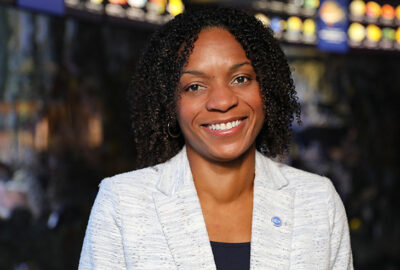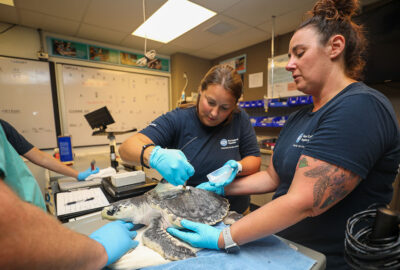We are SOLD OUT of tickets for today, Saturday April 19th.
Please note: We strongly recommend purchasing tickets in advance to guarantee entry tomorrow onward, as we do sell out during school vacation week (April 19 – 27).
Career Spotlight: Patty Leonard’s 20 Years Training Marine Animals
Learn how Patty's career took her from Aquarium volunteer to associate curator of pinnipeds.
By New England Aquarium on Friday, February 14, 2025

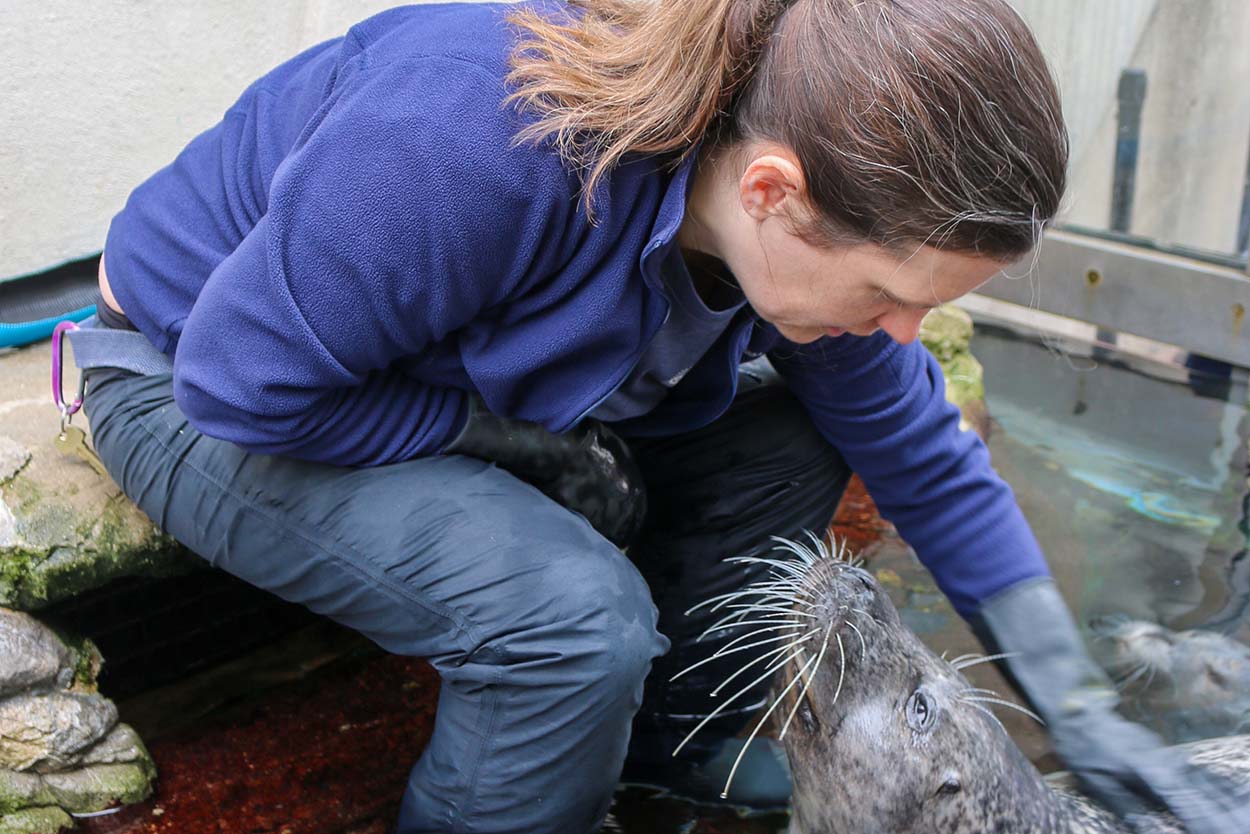
Growing up in landlocked upstate New York, Patty Leonard never imagined a career in marine science—until summer visits to her aunt’s house on Nantucket changed everything. “I had an opportunity to go there for a week or two every summer, and that’s really where my love of the ocean started,” she said.
Her fascination with the ocean deepened at Providence College in Rhode Island. She pursued a biology degree, got her dive certification, and became a teaching assistant for a marine biology professor, a job that included assisting with field research on sea jellies. After graduating, Patty moved to Boston, volunteering at the New England Aquarium and managing a retail store to make a living. At the Aquarium, she prepped food for the animals, helped maintain the facilities, and occasionally assisted with training presentations. About 14 months later, she was hired as a full-time trainer.
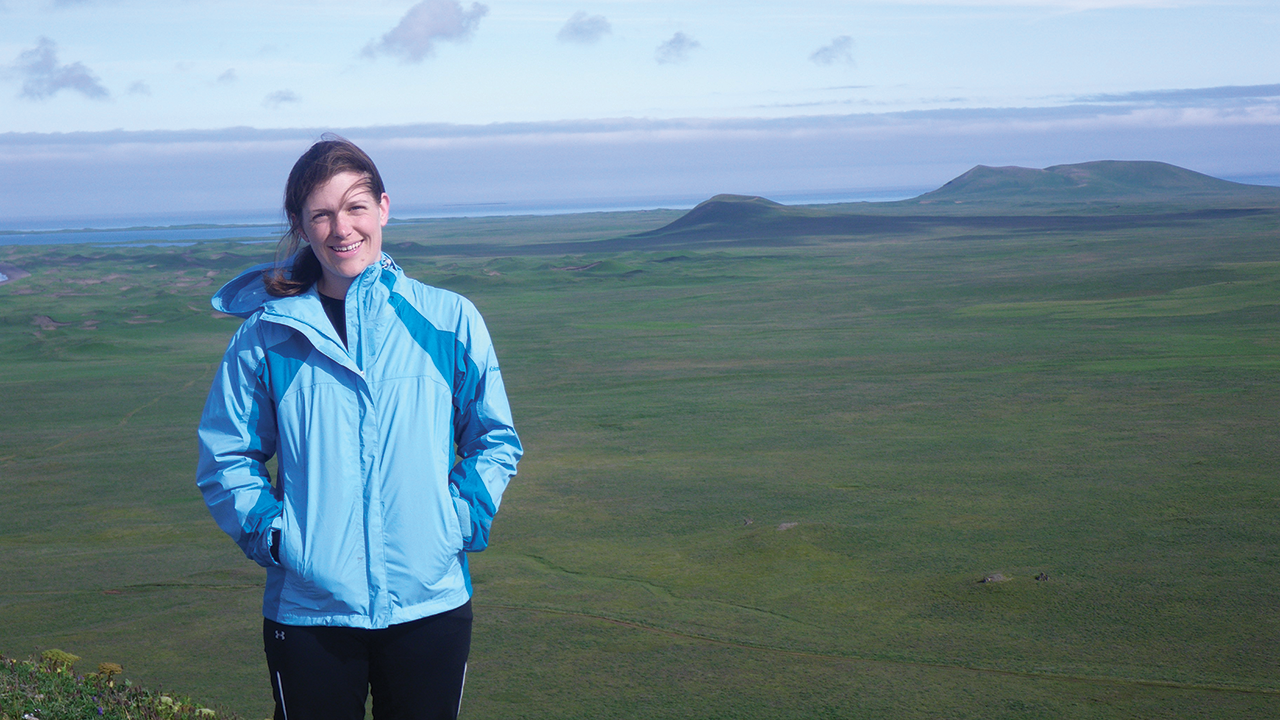
“I remember running down the gangway and down the plaza, so pumped,” she said. “I was like, ‘I just got a job!’”
The first animal she trained was an Atlantic harbor seal named Reggae. Now 31 years old, Reggae is still one of Patty’s favorite animals at the Aquarium. “He’s like our wise old soul,” she said. “Everybody learns to work with him because he’s mellow, he’s patient, he’s just a really awesome guy.”

Over the years, Patty trained countless other animals—including teaching northern fur seal Cordova to do a spin in two days and California sea lion Zoe to do a backflip—using a behavioral science technique called operant conditioning. Trainers break down complex behaviors like spins and backflips into a series of smaller steps called approximations. They reinforce each approximation with rewards like tasty treats and use them as building blocks toward the goal behavior. Training sessions provide enrichment for the animals and, often, help them participate in their own health care and husbandry initiatives. “Knowing that the things that I was helping them learn would allow them to live longer lifespans was inspiring,” Patty said.
About 20 years after starting at the Aquarium, Patty is now the associate curator of pinnipeds, a group of animals that includes Atlantic harbor seals and California sea lions. In this role, she leads a team of trainers, supporting them through training plans and career development. Recently, she watched the pinniped team train California sea lion Farley to voluntarily receive birth control injections by laying down and backing up into a position that helps vets reach his hip.
“I really get a lot of value out of watching our team succeed,” Patty said. Still, she doesn’t mind getting hands-on with the animals when she can. “If you give me a bucket, I’m thrilled to feed any animal you put in front of me.”
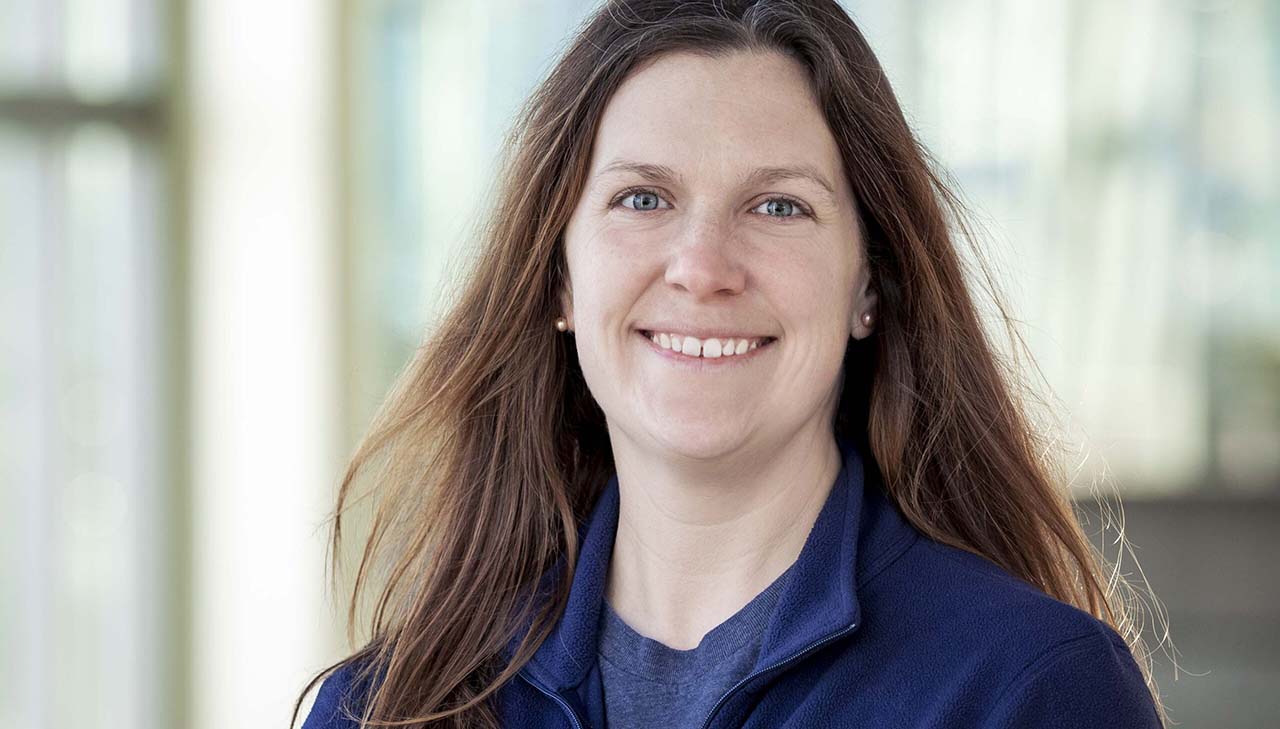
With 20 years of experience, her marine adventure is far from over. Patty continues to do field research and analysis on pinnipeds in the wild. On six occasions, she has traveled to Alaska to study northern fur seal population trends as part of a project that the National Oceanic and Atmospheric Administration has led since the 1970s. Patty is also completing her master’s degree in environmental science at the University of Massachusetts Boston, focusing on northern fur seal foraging patterns in the Bering Sea. She recently took on a leadership role on the Aquarium’s Sustainability Committee, which provides sustainability education and resources for staff.
“The great thing about the Aquarium that I really value is the opportunity to keep developing,” Patty said. “I’ve been here for 20 years, but there’s still so much more that I have to learn as a person, as a trainer, as a mentor, and as a leader. Just being open to that as a person will always be really helpful and serve you well.”

